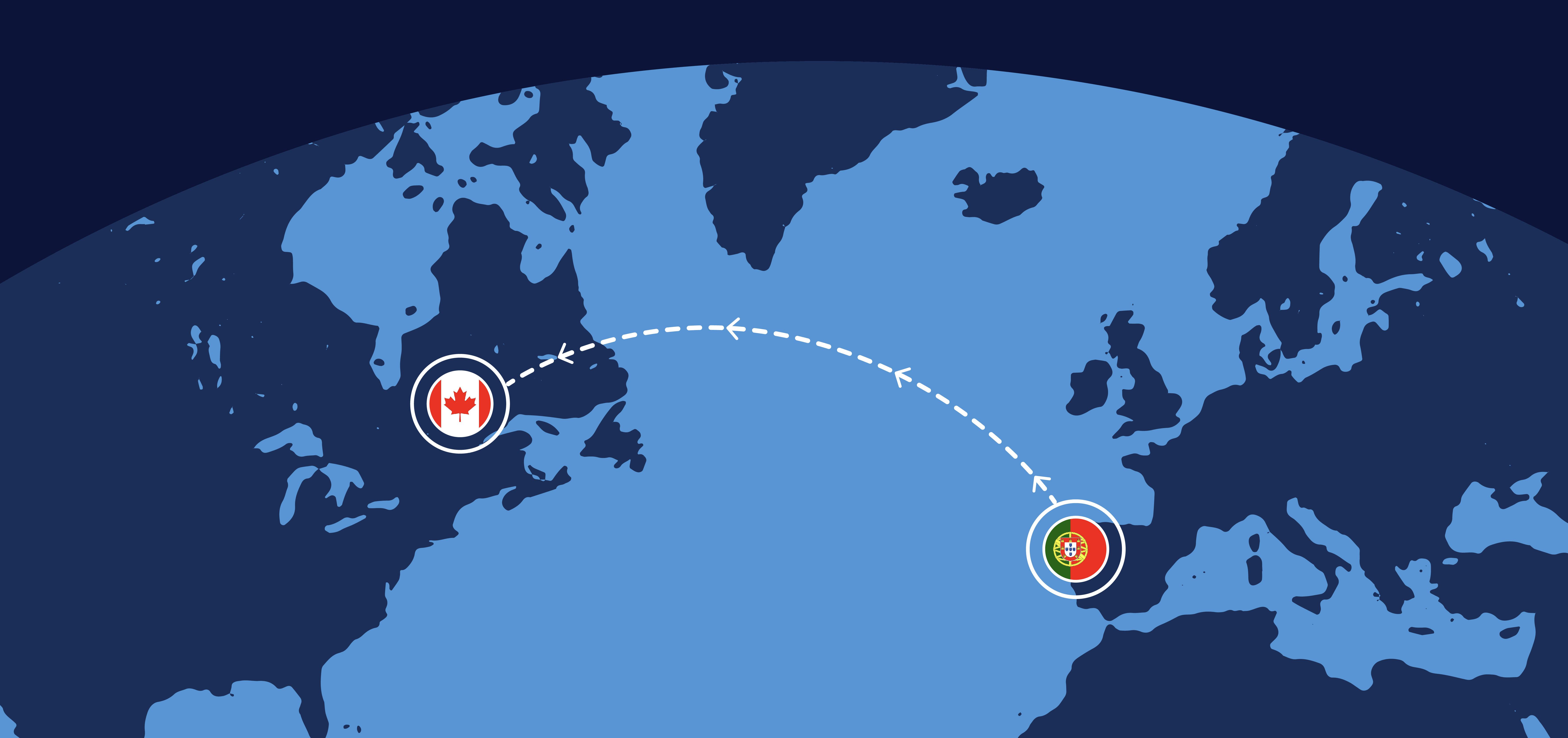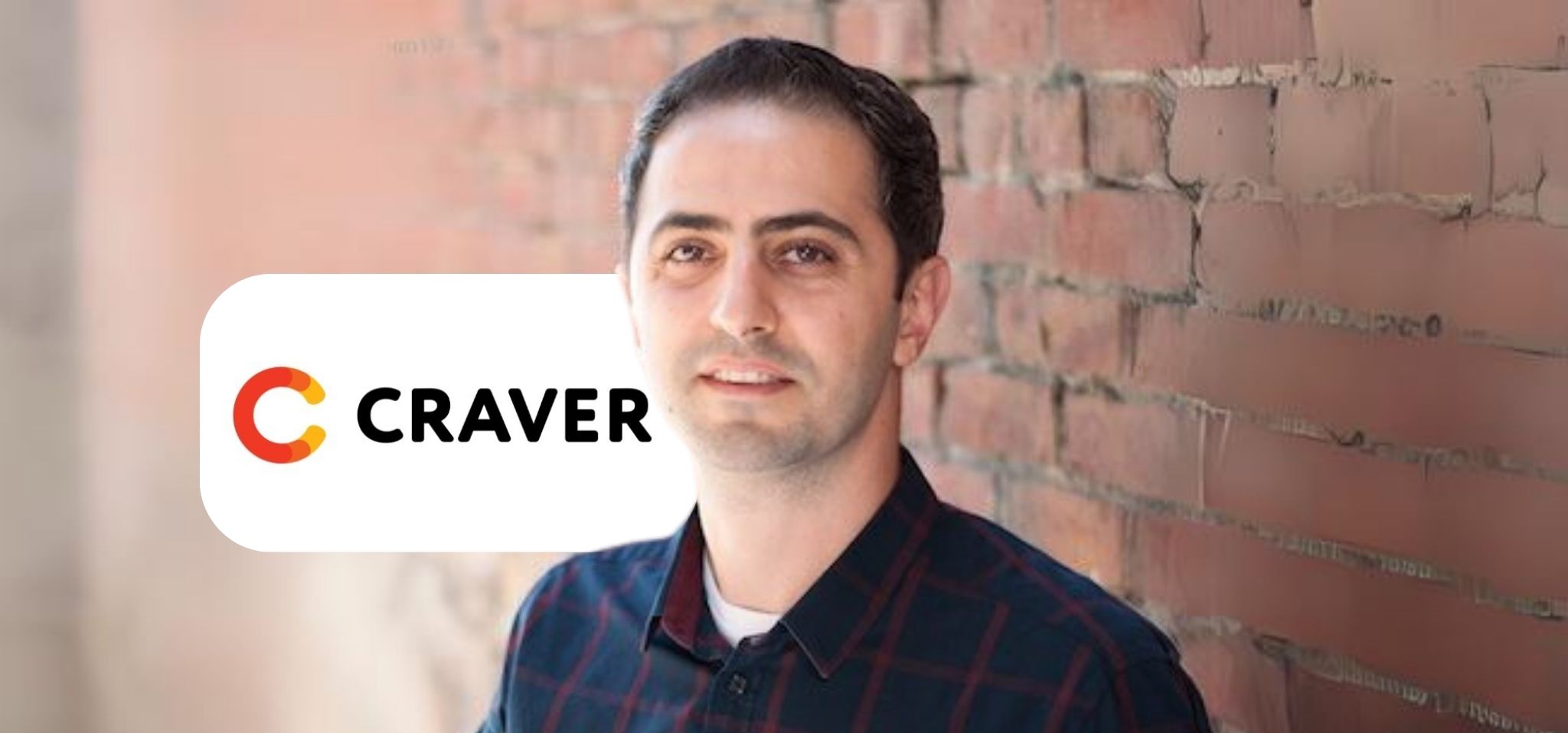
Startup Success: How our event has supported Vancouver’s Craver

As part of our series exploring successful startup stories from our events, we spoke with Craver co-founder and CEO Amin Yazdani.
Founded in 2017 and headquartered in Vancouver, Craver is a service-industry engagement platform aimed at helping local businesses engage with their customers.
We chatted with co-founder and CEO Amin Yazdani about the company’s mission, and about how attending a Web Summit event has helped support the company’s ongoing success.
Tell us a bit about your company and what its focus is.
At Craver, we help small restaurants compete with the big brands.
Right now, local restaurants are losing loyal customers to big brands and to third-party delivery platforms. We want to help these businesses bring back and maintain their customer base and, in turn, revitalize local economies.
To accomplish this, we provide an ordering, engagement and payment platform for these restaurants so they can have their own first-party, branded solution to compete with global brands.
What differentiates Craver from other service-industry engagement platforms?
One of the ways we believe we’re different is that we look at the problem of customer engagement as a holistic problem.
What we believe is that, in order to have a loyal customer base, you need to improve every step of the engagement process from discovery to browsing to ordering to payment.
We want to empower businesses with the technology to streamline these services in order to ensure that their customers are satisfied with the entire process from start to finish.
What was your first experience at one of our events? Is there a specific aspect of the event that Craver particularly benefited from?
Collision 2023 was my first time attending a Web Summit event, and there were a couple aspects of the event that piqued our interest.
Firstly, it’s a really big event for tech startups and – as a Canada-based startup – we were looking for events within the region. I had been to other networking events before, but Collision is bigger than all of them.
The question that we asked ourselves was, ‘If there are 40,000-plus people coming to Collision, does that give us an opportunity to meet the right people, especially from the investor side of things?’. And the answer was ‘yes’.
For almost the entirety of the event, I was in meetings with investors, and that was what I saw as the most important aspect of attending Collision.
There are a lot of people who attended the event that I probably could have connected with over Zoom over the course of six months or so, but, because they are all in town and concentrated in one place, I had the opportunity to meet all of these people over half-hour meetings – and these sit-downs are what really helped kickstart these relationships.
You logged more than 40 direct meetings with investors at Collision (our former North American event, succeeded by Web Summit Vancouver). How did these come about, and how did they impact your business?
We initially applied through the startup to investor matchmaking portal, in which investors get to select the startups they’d most like to meet. I think we met three investors that way. But the other 40 investor meetings came about through us reaching out directly to everybody that had registered as an investor through the Collision app.
We had a daily process of reaching out to every person on the mobile app that had ‘VC’ or ‘Investor’ listed on their profiles to see if they were interested in Craver. And, by doing that, we scheduled 40 additional meetings.
Have you made useful contacts, or received funding and/or interest in investment, since attending?
We made a lot of lasting connections with investors who we are still in talks with, so at some point they might become active investors in Craver.
What was Craver like before attending a Web Summit event, and how does it compare after having attended the event?
I think now, after Collision, we are in a much better position. We have a big chunk of investors we are in direct contact with. So the biggest difference is definitely that we have a much bigger network of supporters.
What advice would you give to startups considering attending one of our events?
We achieved the success we did at Collision 2023 because we were very proactive and we put a lot of effort into the event long before it started. We began proactively pitching in May, so nearly two months ahead of the event.
By the time we landed in Toronto, we probably had 25 to 30 meetings scheduled, and then the other 10 meetings were organized during the event. If you don’t put the necessary work in, you might only organize a fraction of the meetings you have the potential to.
My advice to other startups would be to set some time aside to organize meetings and reach out to investors on the app well in advance.
I’d also like to add that one of the benefits of attending Collision is the platform, and how easy the app makes reaching out to people. A lot of other events keep their attendee list very close to their chest and try to profit off of it, but what I like about Collision is that I could see who was attending and send them a message.
Of course, they may not respond, but at least you have that opportunity to connect with people that might be interested in your company.
Web Summit is coming to Vancouver in 2025. Don’t miss out.
Image of Amin Yazdani, co-founder and CEO of Craver: Web Summit

